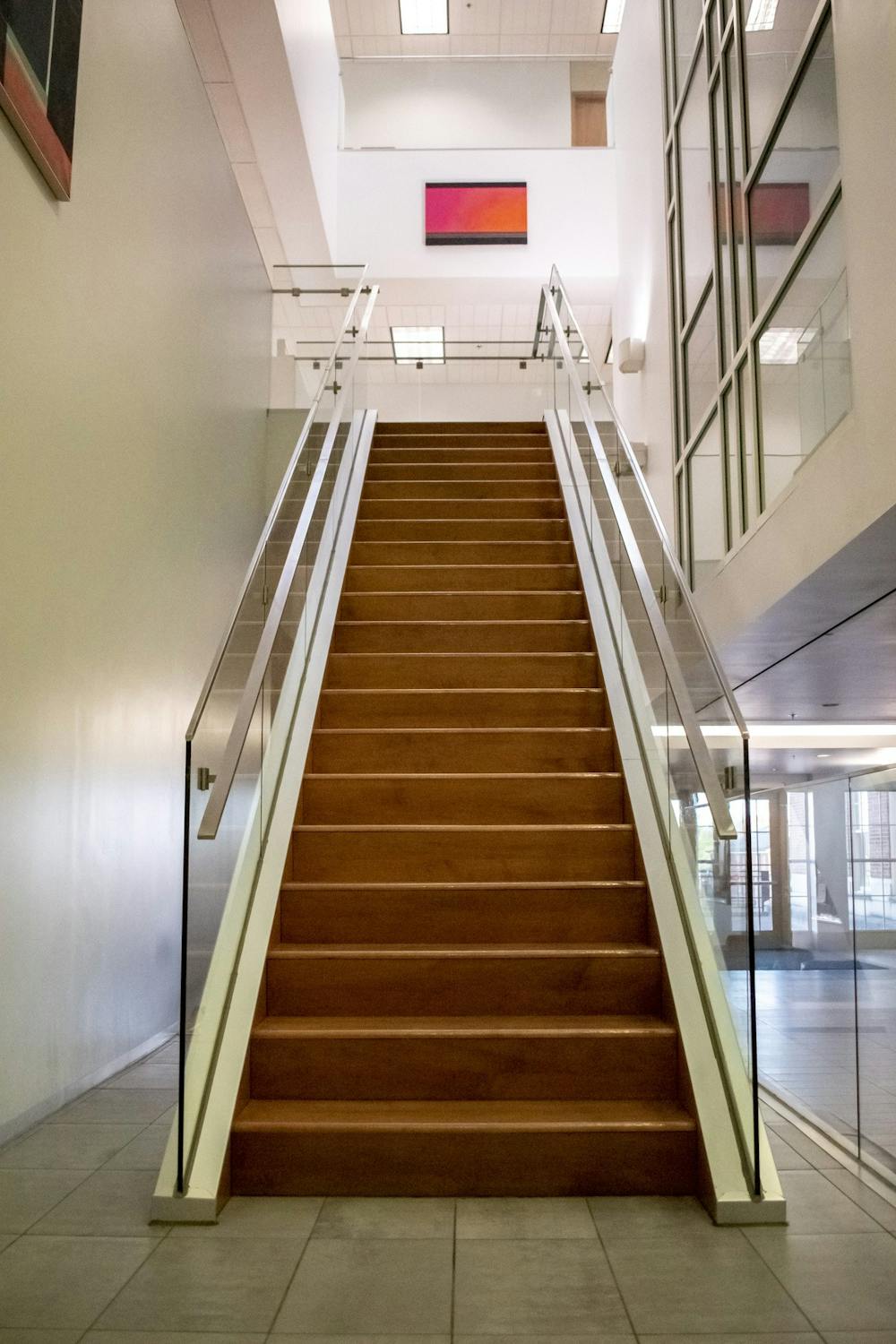When first-year zoology major Lauren Bedell broke her foot in August 2020, it put a dent in her college plans.
Instead of moving onto campus in September, she decided to wait until October when she would be off of her crutches.
When she came to campus, she was still in a boot, and it made some parts campus life difficult to navigate.
“[The biggest challenge was] having to walk places,” Bedell said. “Since I’m in Peabody, I am pretty far away from most places, so walking Uptown was quite an adventure. Even just walking to Armstrong, I’d say it took me [a long time] … I had to walk slower.”
Bedell had mostly online classes, and she didn’t have to worry about getting to campus on time. Because of this, she didn’t use any of the university’s disability services, but would have if her situation were different.
“Thinking back, if I had all in-person classes, it would have been quite a struggle because of trying to time everything to get to class on time and then all the walking probably would have hurt my foot,” she said. “So if I had more in-person classes I definitely would have used the disability services.”
Stephanie Dawson, director of the Miller Center for Student Disability Services at Miami University, said her office works with students like Bedell who have injuries that temporarily affect their abilities.
“The role of the Miller Center is to coordinate accommodations and services for students with disabilities, and when a student has an injury, that is considered a transitory impairment,” Dawson said, “and so there are some resources that we may connect students with when they are injured.”
Short-term injuries aren’t legally considered disabilities, but the Miller Center can help students with conditions that will impact them for three to six months.
For these students, the Miller Center focuses on advocating for accommodations and connecting them to resources they may need. For example, if a student has a hand surgery, they may provide text-to-speech software. If a student has an ACL injury, they may advocate for that student to get housing on the first floor.
“We really will advocate for the student to have accommodations based on whatever their individual need is,” Dawson said.
Students with injuries that last shorter than three months can get connected to resources through the Dean of Students office.
Enjoy what you're reading?
Signup for our newsletter
Tim Parsons, assistant dean of students, wrote in an email to The Miami Student that the office doesn’t directly provide accommodations, but refers students to where they can get them.
“The Office of the Dean of Students would offer to meet with the student to learn more about their situation and the challenges they are facing so that we could make appropriate connections and referrals to the people, offices and resources that can best provide direct support,” Parsons wrote.
One thing the Office of the Dean of Students might do is connect students with the appropriate person in Residence Life to receive housing accommodations if needed.
Another resource that is available to injured students is through Butler County Regional Transit Authority’s (BCRTA) BCare program.
The service, offered throughout Butler County, is available to people with temporary or permanent disabilities that make it difficult for them to take the fixed bus routes and is required by the Americans with Disabilities Act (ADA).
“[The program is] set up for students that have disabilities in a sense that, whether they are gonna be something that is gonna impact them for the rest of their life or something that may be short term, it's really geared toward people with mobility issues,” Luke Morgan, director of operations for BCRTA said
While the Miller Center or Office of the Dean of Students may connect students with BCare, they must apply to use the service and have a signature from a medical professional certifying they are unable to take the regular bus route.
Once they are approved, students can request rides and even schedule them for the whole semester if they have weekly classes.
Parsons and Dawson agreed that one of the biggest challenges for students with injuries is not knowing where to go to get help.
“I think the main [challenge] is that students don’t always know that they should reach out to their faculty or dean of students,” Dawson said, “and so, as a whole, there is an ongoing need to educate students on what to do if they are injured or have an illness.”
Parsons said the Office of the Dean of Students is working to fix this need.
“The Office of the Dean of Students is consistently working to make our office more visible and accessible to students as a first point of contact for any needs that may arise when they don't know where else to go,” Parsons wrote.
Bedell never reached out to the Miller Center or Dean of Students. Although she thought she didn’t need any accommodations, she wasn’t aware of all the resources that were available to her, like the BCare program, which she says would have been helpful.
“Going directly from Peabody to my class or wherever I was going would have been helpful,” she said. “[The bus] kinda makes a ton of stops and none of them are super direct.”
Between the Miller Center, Office of the Dean of Students and the BCare program, many resources are available to injured students who need accommodations.




